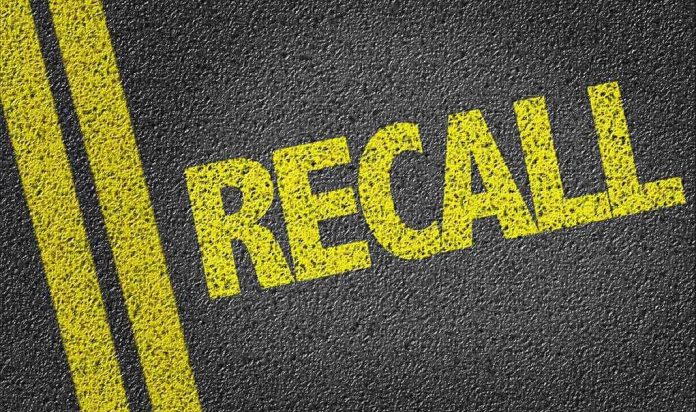
Ford’s 2025 recall blitz has shattered industry records, and the automaker just added another 227,000 vehicles to an already staggering safety crisis that demands your attention if you own one of their models.
Quick Take
- Ford recalled approximately 227,000 US vehicles in October 2025 for windshield and seat defects, marking another major safety action in a record-breaking year
- This recall represents part of Ford’s unprecedented recall volume in 2025, affecting multiple popular models including Bronco, Escape, Mustang, Maverick, and F-150
- The National Highway Traffic Safety Administration identified the safety defects and mandated corrective action from the automaker
- The scale and frequency of recalls in 2025 signal systemic quality control concerns that extend beyond isolated manufacturing defects
A Year of Reckoning for Ford’s Safety Record
Ford Motor Company has transformed 2025 into the most consequential year for vehicle recalls in its modern history. The October 30 announcement of 227,000 vehicles requiring repairs for windshield and seat issues represents not an isolated incident but rather the latest chapter in an escalating safety crisis. When you combine this recall with the multiple actions already taken throughout 2025, the numbers become genuinely alarming for the millions of Ford owners nationwide.
Understanding the Scope of the Problem
The specific defects identified by the National Highway Traffic Safety Administration involve windshield integrity and seat structural issues, both critical safety components that directly protect occupants during accidents. Windshield failures can compromise vehicle structural integrity during collisions, while seat defects may prevent proper occupant restraint. These aren’t minor cosmetic issues or convenience problems—they represent genuine threats to driver and passenger safety that justify immediate regulatory intervention and corrective action.
Why 2025 Became Ford’s Recall Watershed Moment
Ford’s recall numbers in 2025 have shattered previous company records and surpassed industry benchmarks. The automotive industry has witnessed heightened regulatory oversight in recent years, but Ford’s specific challenges suggest something beyond typical manufacturing variations. Multiple models experiencing significant defects simultaneously indicates potential systemic issues within production processes, quality control protocols, or design validation procedures that span across different vehicle platforms and manufacturing facilities.
The frequency and scale of these recalls raise legitimate questions about Ford’s manufacturing practices and engineering validation processes. When a single automaker generates record-breaking recall numbers across diverse vehicle categories, observers rightfully wonder whether adequate quality assurance mechanisms exist at production facilities. Industry analysts have noted that while improved defect detection contributes to increased recalls across the sector, Ford’s specific volume suggests manufacturing challenges requiring serious attention.
The Regulatory Response and Compliance Framework
The NHTSA’s role in identifying these defects and mandating corrective action demonstrates the regulatory system functioning as intended. Federal safety oversight requires manufacturers to address identified defects promptly and comprehensively. Ford’s cooperation with NHTSA and commitment to notifying affected owners represents the legally mandated response, though the necessity of such extensive recalls remains problematic for consumer confidence and brand reputation.
What This Means for Ford Owners Right Now
If you own an affected Ford model, you’ll receive official recall notifications directing you to dealerships for free repairs. The inconvenience factor matters—scheduling service appointments, arranging transportation, and waiting for repairs creates genuine disruption to your life. Beyond the immediate inconvenience lies a deeper concern: the realization that your vehicle contained defects serious enough to warrant federal safety intervention and mandatory repairs.
Ford owners deserve reliable vehicles that meet safety standards from the manufacturing stage onward. The cumulative effect of multiple recalls throughout 2025 understandably erodes confidence in Ford’s quality commitment. Each recall represents a failure in the design, engineering, or production processes that should have prevented these defects from reaching consumers in the first place.
Looking Forward: Systemic Questions Remain
Ford’s record-breaking recall year raises critical questions about manufacturing practices, quality control investments, and engineering validation procedures. The automotive industry faces increased pressure to maintain safety standards while managing production complexity and cost pressures. Ford’s 2025 performance suggests the company may have prioritized other factors over the rigorous quality assurance necessary for consumer protection and brand integrity.
Moving forward, Ford must demonstrate substantive improvements in quality control and defect prevention rather than simply managing recalls after problems emerge. Consumers deserve vehicles engineered and manufactured to exceed safety standards consistently, not vehicles requiring federal intervention and mandatory repairs to meet minimum safety requirements.
Sources:
Ford Support – Recalls Details
Ford to Recall About 227,000 Vehicles in US for Windshield, Seat Issues, NHTSA Says – MarketScreener




